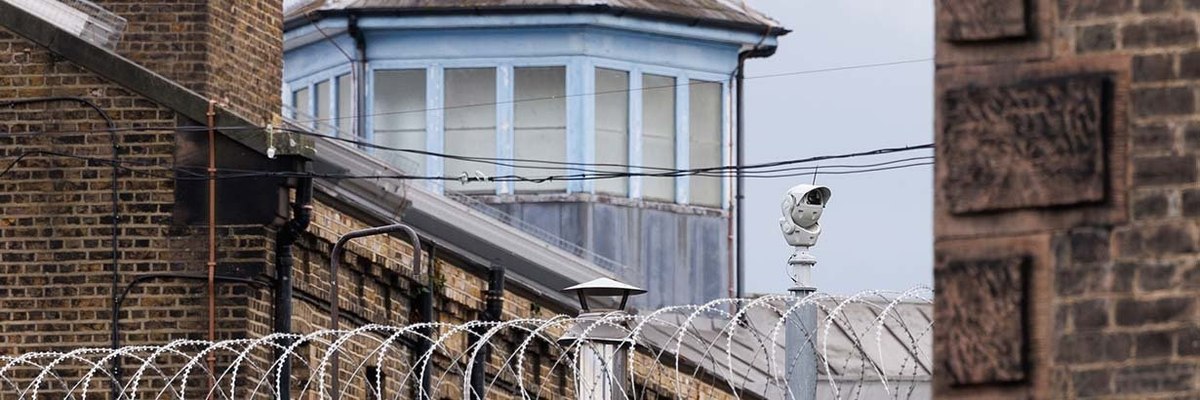Only one in six Britons back the government’s plans for early release of prisoners, but more are open to expanding house arrest and suspended sentences
One of the most pressing matters for the new government has been the shortage of prison space in England and Wales, with the Prison Governors’ Association recently warning that prisons were just days away from running out of cells.
The last government already implemented several emergency measures to alleviate the problem, including releasing some prisoners early and using police cells as overflow. The new government has gone further, announcing prisoners could be released having served 40% of their sentence. But although it is clear the government has to do something, the room to do something that will both work and be popular is limited by the public’s lack of enthusiasm for proposed solutions.
Most popular, favoured by eight in ten Britons (80-82%), are releasing foreign nationals early so they can be deported and building more prisons, both policies already introduced by the previous government, albeit the latter being more of a long-term solution. Nonetheless, they command overwhelming support across every part of the public and should eventually free up capacity.
With less support among the public are proposals to use police jail cells as overflow, loosening overcrowding restrictions, or delaying court hearings for those awaiting trial. The first two are only favoured by 35-36% of the public, while delaying court hearings is by far the least popular of the proposals polled – a preferred solution for only 6% of Britons and opposed by 81%.
The headline policy of early releases of prisoners is ostensibly fairly unpopular. The Conservative scheme of releasing prisoners up to ten weeks early gains the support of 31% of Britons, while being opposed by the majority (58%). Labour’s new policy of reducing the proportion of a sentence that has to be served in prison from 50% to 40% receives even less approval – 71% of the public oppose it and only 17% support it.
However, it’s notable that allowing low-risk offenders to begin their sentences under house arrest and increasing the length of a sentence that can be suspended hold much higher levels of support, being favoured by 62% and 50% of Britons respectively. Given prisoners who are released early will end up under similar conditions implies that framing is key in achieving support for the policy. The public seemingly infer that released early means going free, which they do not support, even if it actually means released under some form of licence, which they do.
Who do the public think should be eligible for early release?
Regardless of public scepticism, the early release programme is government policy and it is expected to be implemented from September. As such, some prisoners will be released in the coming months, and the public response will likely be influenced by which types of prisoner get to end their prison stay earlier than planned.
The government has already outlined which types of offender will not be eligible for early release under the scheme, including those who have committed sexual offences, domestic abuse-related crimes and those who have been sentenced to four years or more for violent offences.
Unsurprisingly, Britons overwhelmingly agree (80-87%) with these exclusions. However, it is clear that the public take a harder stance than the new justice secretary, with three-quarters (75%) also opposing violent offenders with sentences under four years from being eligible for early release, and 55% also wishing for burglars to be excluded from consideration.
Less than a quarter (21-24%) are against non-violent drug offenders and shoplifters from being eligible for any such programme, with the early release of those who committed fraud, criminal damage or cyber-crime also being more acceptable to the public than unacceptable. Again, this suggests that there is really a substantive degree of nuance to public attitudes towards an early release programme, even if in principle it elicits a negative opinion.
Who do the public hold responsible for the prison space shortage?
As with any crisis, the question of who is responsible will play a central part in the public debate around it. At present, Britons do not especially fault the new government – half (49%) viewing the last Conservative government as most responsible, with only 2% outright blaming Starmer's. One in three do, however, say they hold both governments equally responsible.
Obviously, there is a clear partisan component to this blame game – two thirds (65%) of Conservative supporters view both governments as culpable, while Labour and Lib Dem voters predominantly hold only the last government as most responsible (78% and 69% respectively).
The fact that eight out of ten Britons (81%) blame, either solely or equally, the previous Conservative government for the prison crisis should not be surprising when considering how badly the public view their record on the issue of crime and punishment.
Only one in eight Britons (13%), including just one in three (35%) Conservative voters, believe the last government performed well on crime, with a statistical 0% of the public viewing ‘very well’ as an appropriate judgement. At least two-thirds of every social group, and more than three-quarters of Labour, Lib Dem and Reform UK voters, believe the Conservative government performed badly on the issue.
That said, there is limited optimism that the new Labour government will perform significantly better. While 32% of Britons do expect the new government to do well on the issue of crime and punishment, 42% expect five years of disappointment.
See the full results here
What do you think about criminal justice policy, British politics in general, and everything else? Have your say, join the YouGov panel, and get paid to share your thoughts. Sign up here.
Photo: Getty








